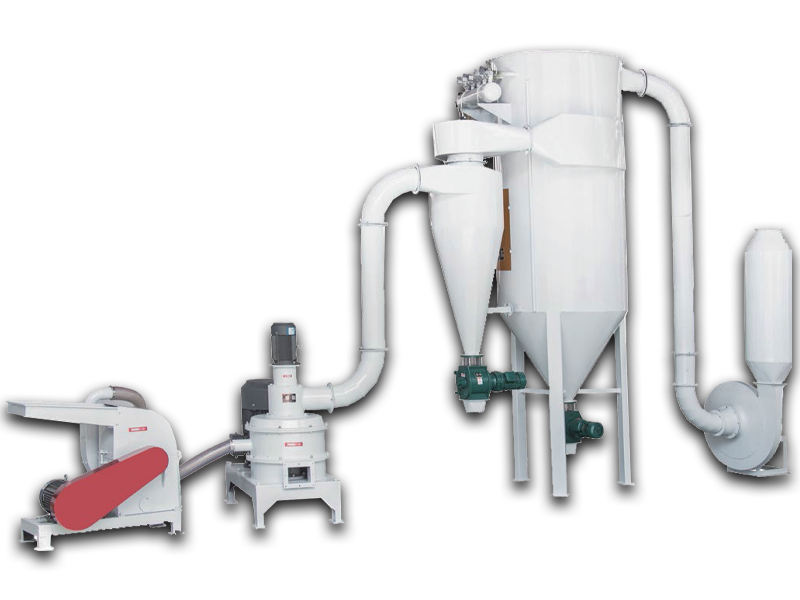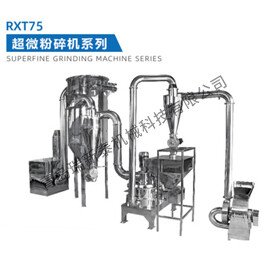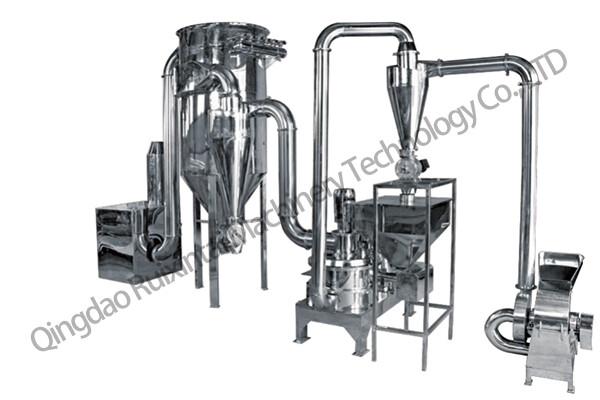RELATED
MESSAGE
Micronization machines, often referred to as pulverizers, are essential tools in industries such as pharmaceuticals, chemicals, food processing, and cosmetics. These machines are designed to reduce materials into ultra-fine powders, ensuring uniform particle sizes that enhance product quality and performance. However, operating a micronization machine comes with its own set of challenges. As a trusted pulverizer manufacturer, Ruixintai has extensive experience in designing and optimizing micronization equipment. In this article, we explore the common challenges faced during the operation of micronization machines and how Ruixintai addresses these issues to ensure efficient and reliable performance.
Understanding Micronization and Its Importance
Micronization involves the reduction of solid materials to particle sizes in the micrometer range, typically less than 10 microns. This process is critical in industries where uniform particle size is essential for product consistency, bioavailability, or efficient chemical reactions. For instance, in the pharmaceutical industry, micronized drugs dissolve more quickly, improving their absorption in the body. In the food industry, fine powders enhance texture and flavor distribution.
While the benefits of micronization are undeniable, achieving ultra-fine particle sizes requires precision and expertise. The machines used for this process must operate under specific conditions to ensure optimal results. However, various operational challenges can impact the efficiency and effectiveness of micronization machines.
Key Challenges in Operating Micronization Machines
1. Material Characteristics
One of the primary challenges in operating a micronization machine is dealing with the diverse characteristics of materials. Different materials have varying hardness, moisture content, melting points, and chemical properties, all of which can affect the micronization process.
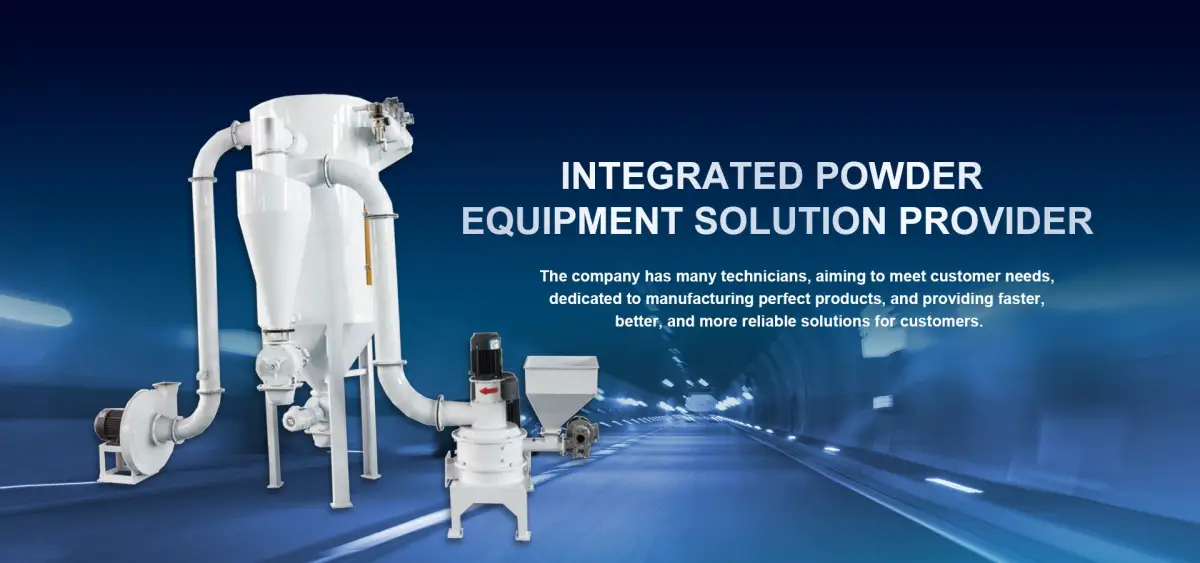
- Hardness: Hard materials can cause excessive wear and tear on the machine’s components, leading to frequent maintenance and downtime.
- Moisture Content: Materials with high moisture content can clog the machine, reducing its efficiency and increasing the risk of damage.
- Heat Sensitivity: Some materials are heat-sensitive and may degrade during the micronization process, especially if the machine generates excessive heat.
Ruixintai addresses these challenges by offering customized pulverizers designed to handle specific material properties. Our machines are equipped with advanced cooling systems and wear-resistant components to ensure durability and performance.
2. Maintaining Consistent Particle Size
Achieving consistent particle size is crucial for product quality. However, factors such as machine settings, feed rate, and material properties can lead to variations in particle size.
Operators must carefully monitor and adjust the machine’s parameters to maintain uniformity. This requires a deep understanding of the machine’s operation and the material being processed. Ruixintai’s micronization machines are designed with user-friendly controls and real-time monitoring systems, enabling operators to make precise adjustments and achieve consistent results.
3. Energy Consumption
Micronization is an energy-intensive process, especially when dealing with hard or dense materials. High energy consumption not only increases operational costs but also contributes to environmental concerns.
To address this challenge, Ruixintai has developed energy-efficient pulverizers that optimize power usage without compromising performance. Our machines are engineered to minimize energy losses and maximize throughput, ensuring cost-effective operation.
4. Machine Wear and Tear
Continuous operation of micronization machines can lead to wear and tear on critical components such as grinding plates, blades, and screens. This can result in frequent maintenance, increased downtime, and higher operational costs.
Ruixintai uses high-quality, wear-resistant materials in the construction of its pulverizers. Additionally, our machines are designed for easy maintenance, with replaceable components that reduce downtime and maintenance costs.
5. Dust and Noise Control
The micronization process generates significant amounts of dust, which can pose health risks to operators and lead to contamination of the work environment. Noise is another common issue, especially in industrial settings.
Ruixintai prioritizes operator safety and environmental compliance by incorporating advanced dust collection systems and noise-reduction features into its pulverizers. Our machines are designed to meet industry standards for workplace safety and environmental protection.
6. Operator Training and Expertise
Operating a micronization machine requires specialized knowledge and skills. Operators must understand the machine’s mechanics, material properties, and process parameters to achieve optimal results.
Ruixintai provides comprehensive training and support to its customers, ensuring that operators are well-equipped to handle the challenges of micronization. Our team of experts is always available to provide technical assistance and guidance.
7. Scalability and Production Demands
Industries often face fluctuating production demands, requiring machines that can adapt to different scales of operation. However, scaling up or down can be challenging, especially if the machine is not designed for flexibility.
Ruixintai’s pulverizers are built with scalability in mind. Our machines can be easily adjusted to accommodate varying production volumes, ensuring seamless operation regardless of demand.
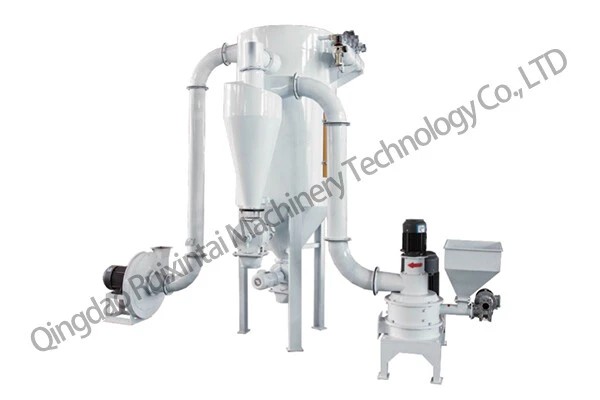
How Ruixintai Overcomes Operational Challenges
As a leading pulverizer manufacturer, Ruixintai is committed to delivering high-performance micronization machines that address the challenges of operation. Here are some of the ways we ensure optimal performance and reliability:
- Customized Solutions: We design and manufacture pulverizers tailored to the specific needs of our customers, ensuring compatibility with diverse materials and applications.
- Advanced Technology: Our machines are equipped with state-of-the-art features such as real-time monitoring, energy-efficient motors, and precision controls.
- Durable Construction: We use high-quality materials and components to ensure the longevity and reliability of our machines.
- Comprehensive Support: From installation and training to maintenance and troubleshooting, we provide end-to-end support to our customers.
Focus on Safety: Our machines are designed to meet the highest standards of safety and environmental compliance, protecting both operators and the environment.
Conclusion
Operating a micronization machine is a complex process that requires careful consideration of material properties, machine settings, and operational challenges. As a trusted pulverizer manufacturer, Ruixintai understands these challenges and is dedicated to providing innovative solutions that enhance efficiency, reliability, and safety. By investing in high-quality equipment and comprehensive support, businesses can overcome the challenges of micronization and achieve consistent, high-quality results.
At Ruixintai, we are committed to helping our customers succeed. Whether you need a customized pulverizer or expert guidance on optimizing your micronization process, we are here to help. Contact us today to learn more about our products and services.
With Ruixintai’s expertise and cutting-edge technology, you can confidently navigate the challenges of operating a micronization machine and unlock the full potential of your materials.
Tags:food grade pulverizer,Pulverizer,pharmaceutical pulverizer,precision milling equipment
CONTACT US
Please use the form below to get in touch.
If you need a reply we will get in touch as soon as possible.

